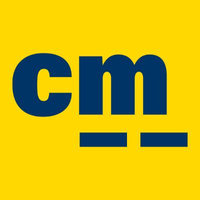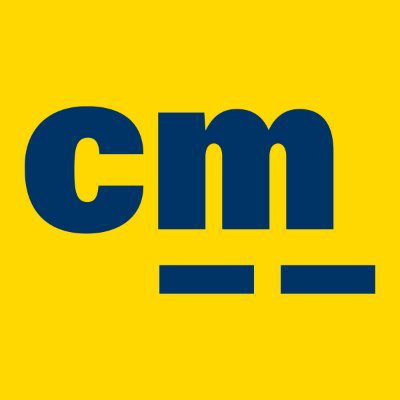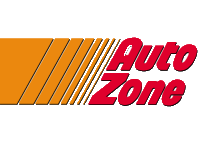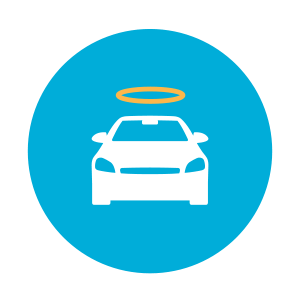
Carmax Inc
NYSE:KMX


| US |

|
Johnson & Johnson
NYSE:JNJ
|
Pharmaceuticals
|
| US |

|
Berkshire Hathaway Inc
NYSE:BRK.A
|
Financial Services
|
| US |

|
Bank of America Corp
NYSE:BAC
|
Banking
|
| US |

|
Mastercard Inc
NYSE:MA
|
Technology
|
| US |

|
UnitedHealth Group Inc
NYSE:UNH
|
Health Care
|
| US |

|
Exxon Mobil Corp
NYSE:XOM
|
Energy
|
| US |

|
Pfizer Inc
NYSE:PFE
|
Pharmaceuticals
|
| US |

|
Palantir Technologies Inc
NYSE:PLTR
|
Technology
|
| US |

|
Nike Inc
NYSE:NKE
|
Textiles, Apparel & Luxury Goods
|
| US |

|
Visa Inc
NYSE:V
|
Technology
|
| CN |

|
Alibaba Group Holding Ltd
NYSE:BABA
|
Retail
|
| US |

|
3M Co
NYSE:MMM
|
Industrial Conglomerates
|
| US |

|
JPMorgan Chase & Co
NYSE:JPM
|
Banking
|
| US |

|
Coca-Cola Co
NYSE:KO
|
Beverages
|
| US |

|
Walmart Inc
NYSE:WMT
|
Retail
|
| US |

|
Verizon Communications Inc
NYSE:VZ
|
Telecommunication
|
Utilize notes to systematically review your investment decisions. By reflecting on past outcomes, you can discern effective strategies and identify those that underperformed. This continuous feedback loop enables you to adapt and refine your approach, optimizing for future success.
Each note serves as a learning point, offering insights into your decision-making processes. Over time, you'll accumulate a personalized database of knowledge, enhancing your ability to make informed decisions quickly and effectively.
With a comprehensive record of your investment history at your fingertips, you can compare current opportunities against past experiences. This not only bolsters your confidence but also ensures that each decision is grounded in a well-documented rationale.
Do you really want to delete this note?
This action cannot be undone.

| 52 Week Range |
67.21
87.2
|
| Price Target |
|
We'll email you a reminder when the closing price reaches USD.
Choose the stock you wish to monitor with a price alert.

|
Johnson & Johnson
NYSE:JNJ
|
US |

|
Berkshire Hathaway Inc
NYSE:BRK.A
|
US |

|
Bank of America Corp
NYSE:BAC
|
US |

|
Mastercard Inc
NYSE:MA
|
US |

|
UnitedHealth Group Inc
NYSE:UNH
|
US |

|
Exxon Mobil Corp
NYSE:XOM
|
US |

|
Pfizer Inc
NYSE:PFE
|
US |

|
Palantir Technologies Inc
NYSE:PLTR
|
US |

|
Nike Inc
NYSE:NKE
|
US |

|
Visa Inc
NYSE:V
|
US |

|
Alibaba Group Holding Ltd
NYSE:BABA
|
CN |

|
3M Co
NYSE:MMM
|
US |

|
JPMorgan Chase & Co
NYSE:JPM
|
US |

|
Coca-Cola Co
NYSE:KO
|
US |

|
Walmart Inc
NYSE:WMT
|
US |

|
Verizon Communications Inc
NYSE:VZ
|
US |
This alert will be permanently deleted.
 Carmax Inc
Carmax Inc
 Carmax Inc
Other Current Liabilities
Carmax Inc
Other Current Liabilities
Carmax Inc
Other Current Liabilities Peer Comparison
Competitors Analysis
Latest Figures & CAGR of Competitors

| Company | Other Current Liabilities | CAGR 3Y | CAGR 5Y | CAGR 10Y | ||
|---|---|---|---|---|---|---|

|
Carmax Inc
NYSE:KMX
|
Other Current Liabilities
$69.8m
|
CAGR 3-Years
413%
|
CAGR 5-Years
116%
|
CAGR 10-Years
34%
|
|

|
Autozone Inc
NYSE:AZO
|
Other Current Liabilities
$30.9m
|
CAGR 3-Years
-45%
|
CAGR 5-Years
-20%
|
CAGR 10-Years
-21%
|
|

|
Penske Automotive Group Inc
NYSE:PAG
|
Other Current Liabilities
N/A
|
CAGR 3-Years
N/A
|
CAGR 5-Years
N/A
|
CAGR 10-Years
N/A
|
|

|
Carvana Co
NYSE:CVNA
|
Other Current Liabilities
$139m
|
CAGR 3-Years
32%
|
CAGR 5-Years
54%
|
CAGR 10-Years
N/A
|
|

|
Murphy Usa Inc
NYSE:MUSA
|
Other Current Liabilities
$62.8m
|
CAGR 3-Years
94%
|
CAGR 5-Years
N/A
|
CAGR 10-Years
3%
|
|

|
O'Reilly Automotive Inc
NASDAQ:ORLY
|
Other Current Liabilities
$1.1B
|
CAGR 3-Years
17%
|
CAGR 5-Years
18%
|
CAGR 10-Years
13%
|
|
Carmax Inc
Glance View
CarMax Inc. found its genesis in the concept of revolutionizing the used car market, which had long been plagued by a reputation for questionable practices and lack of transparency. Established in 1993 by Circuit City executives, CarMax quickly emerged as a disruptive force by instilling trust and simplicity into the automotive retail environment. The company shed light on vehicle histories and pricing structures that were previously cloaked in opacity, thus offering buyers a reliable alternative in a fragmented market. By implementing a chain of superstores, CarMax provided an extensive inventory where customers could browse, test, and purchase vehicles in one streamlined experience. This customer-centric model set CarMax apart from traditional dealerships, driving rapid expansion and solidifying its foothold as a dominant player in the used-car landscape. Operationally, CarMax generates its revenue through a combination of direct car sales and associated financing services. The primary income stream flows from buying cars at auction or from individual sellers, then refurbishing them for resale at attractive prices. CarMax’s no-haggle, fixed-price strategy not only simplifies the buying process but also cultivates trust with customers, enticing high-volume sales. Furthermore, CarMax capitalizes on its captive finance arm, CarMax Auto Finance, which offers a range of financing solutions that generate interest income and diversify revenue streams. Additionally, by selling vehicles that do not meet their retail standards at wholesale auctions, CarMax efficiently manages inventory and mitigates potential losses. The synergy between its innovative retail approach and complementary financial services continues to fuel the company's growth and profitability in the ever-evolving automotive market.

See Also
What is Carmax Inc's Other Current Liabilities?
Other Current Liabilities
69.8m
USD
Based on the financial report for Nov 30, 2024, Carmax Inc's Other Current Liabilities amounts to 69.8m USD.
What is Carmax Inc's Other Current Liabilities growth rate?
Other Current Liabilities CAGR 10Y
34%
Over the last year, the Other Current Liabilities growth was 560%. The average annual Other Current Liabilities growth rates for Carmax Inc have been 413% over the past three years , 116% over the past five years , and 34% over the past ten years .






























 You don't have any saved screeners yet
You don't have any saved screeners yet